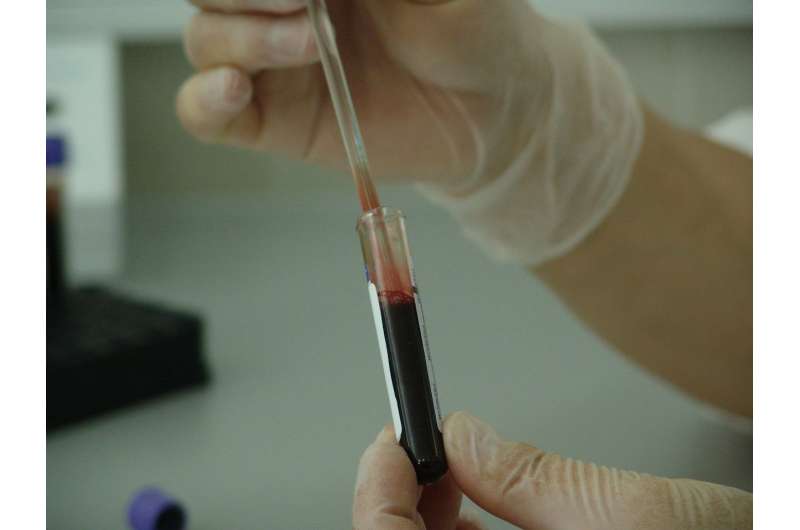Improved cancer immunotherapies require radical CAR overhaul

CAR-T cell therapy is a new and revolutionary weapon against cancer: T cells are isolated from the patient's blood for genetic modification and then infused back into the patient to attack cancer cells. Researchers from the Medical University of Vienna have now determined why CAR-T cells do not destroy tumor cells that express tumor antigens in small numbers. Their study, published in Nature Immunology, shows that CAR-T cells fail to initiate adequate intracellular signaling when facing low antigen densities, even though they bind the antigen in a highly efficient manner.
CAR-T cells are T cells taken from cancer patients and genetically engineered to express a so-termed Chimeric Antigen Receptor (CAR). Such CARs bind to the tumor antigen on the tumor cell turning the modified T cell into tumor killers. As of now, CAR-T-cell therapy is a powerful therapy option for about one fifth of patients in Austria suffering from diffuse large-cell lymphoma or acute lymphoblastic leukemia (ALL). It furthermore holds the promise to become a more universal weapon in the fight against cancer.
In CAR-T cell therapies, which have already been licensed for treating B cell lymphoma, a specific protein (CD19) on the tumor surface is recognized by the "armed" CAR-T cell. If CARs engage CD19 molecules in larger numbers, they swiftly trigger the destruction of the tumor cell. This type of tumor recognition is fundamental to CAR-T cell therapy and opens up a new treatment option for cancer patients, especially when applied together with existing standard treatments (e.g. immunochemotherapy). Remarkably, this form of treatment is effective in lymphoma, which are highly resistant to standard therapies. It prolongs survival and, more often than not, leads to a complete cure.
Venugopal Gudipati and Johannes Huppa from the Institute of Hygiene and Applied Immunology of the Medical University of Vienna have discovered with the use of ultrasensitive single molecule microscopy (which allows individual molecules to be analyzed in much detail) that this mode of recognition no longer works for cancer cells that have downregulated their antigen density. This means that tumors relapse in almost 50% of patients treated. As lead authors of the study, which they conducted together with colleagues from University Hospital Würzburg and the University of Natural Resources and Applied Life Sciences in Vienna, Dr. Gudipati and Prof. Huppa demonstrated that CAR-T cells need at least 1,000 antigens to be adequately stimulated for delivering a killer response.
Naturally occurring T cells, which detect and then fight virus-infected cells with the aid of their T cell antigen receptor, require only 1-5 viral antigens to achieve this. "The results of our study suggest that future CAR designs should be based on the architecture of the T cell antigen receptor if we aim for much needed improvements in CAR-T cell antigen sensitivity and effective tumor clearance," explains Dr. Gudipati.
Prof. Huppa adds "if successful, we are very hopeful that we will get access to highly sensitive and highly efficient CARs." Another desired outcome may in fact be that future CAR-T cells may be effectively deployed for a large number of other cancers with low or heterogeneous tumor antigen expression. At current such malignancies are out of reach for CAR T cells. Their findings were recently published in the renowned journal Nature Immunology.
More information: Venugopal Gudipati et al. Inefficient CAR-proximal signaling blunts antigen sensitivity, Nature Immunology (2020). DOI: 10.1038/s41590-020-0719-0



















